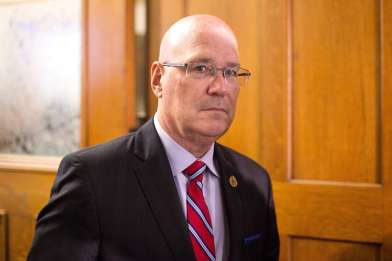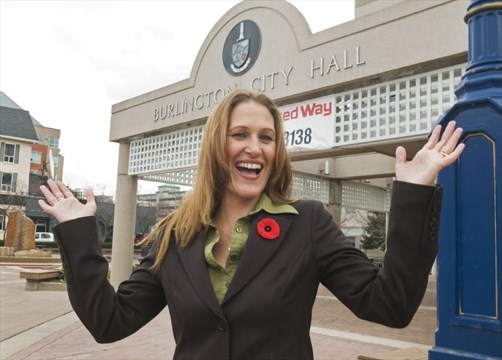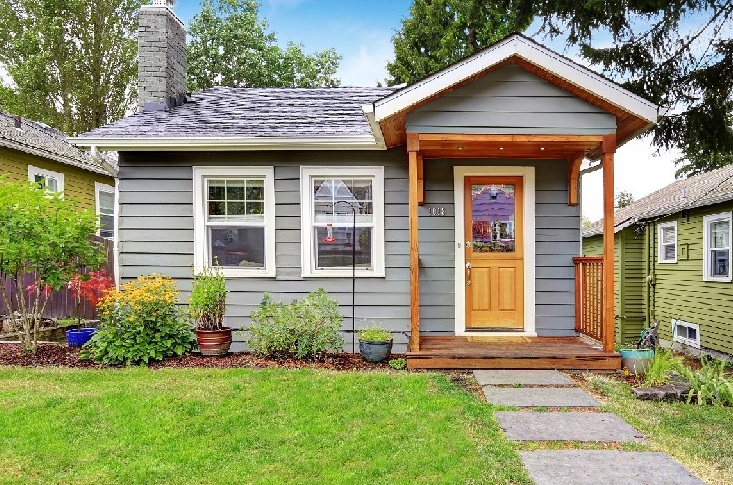 By Pepper Parr
By Pepper Parr
June 24th, 2019
BURLINGTON, ON
Burlington’s Mayor and the Minister of Municipalities and Housing are using the same words: do they mean the same thing?
Mayor Meed Ward has insisted that growth must pay for growth and she has argued vociferously that growth is being put on the backs of taxpayers.
 On Friday, Steve Clark, Minister of Municipal Affairs and Housing said “Growth must pay for growth and it’s important that municipalities have the resources to support complete communities.”
On Friday, Steve Clark, Minister of Municipal Affairs and Housing said “Growth must pay for growth and it’s important that municipalities have the resources to support complete communities.”
He added that Bill 108, the legislation that got rushed through the Legislature faster than a pregnant teenager could get before an altar, covers this problem.
The Doug Ford government passed Bill 108, on June 6th which established a new community benefits approach to ensure that developers pay for community benefits like parks, community centres and libraries.

Is the Mayor about to learn that the city’s revenue steam is going to be assured?
Ontario announced that it has launched consultations on the best way to implement this new approach to make sure that vital municipal revenue streams are maintained and to make community benefits more transparent and predictable.
People at the municipal level were stunned at the speed with which the Bill was passed and the implications for tax payers. The Bill makes changes to 13 other significant pieces of legislation which municipal planners are working diligently to fully understand.
While the municipal planners figure out ‘what is this going to mean to us’ the province announced there would be 140 days of consultation before the end of the year, with the final changes intended to make the upfront costs of new housing more predictable for everyone.
The consultation was launched following discussions with the Association of Municipalities of Ontario, the City of Toronto and municipalities across Ontario. The government wants early feedback from municipalities on the approach to develop the formula associated with community benefits charges.
There will be a technical working group with municipalities that will provide advice to our government on the proposed approach and a draft formula. More consultations will occur this fall on the draft formula.
“We are consulting on the best way to replace the current system of ‘let’s make a deal planning’ with a system that puts people and communities first.”
Clark added that there is a “patchwork of complex and confusing ways municipalities set and collect the fees that help pay for services like libraries and community centres.
With both the Mayor and the Minister using the same words and the Minister saying the “let’s make a deal” approach to development approvals has to come to an end Burlington might find itself agreeing with current provincial government.
Bill 108, officially known as the More Homes, More Choice Act was, according to the ministry, “informed by a broad public consultation that included feedback from the public, as well as business and industry, research and development sectors, municipalities, the agricultural and environmental sector and many others. The government received more than 2,000 submissions and 85 per cent came from the public.”
That statement doesn’t square with what the Gazette has heard from its readers.
The ministry added in their statement that they “are consulting with local residents so they can have a say in deciding how community benefit charges are spent to support services like parks and daycares, through their municipality’s community benefits strategy.
“The new approach will ensure we avoid situations where municipalities, like the City of Toronto, can have over $200 million in money collected from development that isn’t being invested in the community.

Are ‘Granny Flats’ going to be possible in Burlington?
“A related consultation on proposed Planning Act regulations will, among other things, look at how to make it easier for homeowners to create a second residential unit on their property and to bring in changes to the Local Planning Appeal Tribunal.”
The scramble at municipal planning departments to make sense of the changes that are proposed and determining how to respond to the 140 day consultation period is going to be a challenge. Burlington already has more on its plate than it can eat never mind digest.



















If you look at the evidence in the Development Charges Background studies and supporting documents you will see that development growth has never paid fully for growth and never will despite what the province says at the moment. It’s a con game.
And this DC evidence is based on the DC Act which is the provincial rule book.
I have seen this non-payment since the 1990’s and I can assure you that this is true. Most of this time it was a worse situation that sometimes was better, but never was it even.
And the way things are going it’s just going to get worse. Look at Burlington’s DC Background study to see the direction for transportation and transit long term. This can change of course, but it has not.
Halton has its own story – go look there.
How Bill 108 will play out is yet to be seen. Is this bill a good thing – I don’t know, perhaps it is? Personally, I have never been a fan of “Community Benefits” that the City negotiates with the developer in return for additional height or for less parking spaces. WHY? Because this is not mandated, this is simply a suggestion made by the city and developers do not have to follow through. This has been the case with the Berkley Development by Carriage Gate. Where is the parking garage? Where is the 8 storey Medical Building? Presently only the condominium portion of this development has been completed, and there are “rumours” that the other 2 parcels of land on that property have been sold.
What could that mean? The new owner can go back to the City and request something different than what was originally agreed upon with Carriage Gate. So much for “Community Benefits”.
Community Benefits, in my humble opinion should be just that – NOT public art. The last thing we need is public art in exchange for more height, which results in congestion on the streets and less retail space in the area ( our infrastructure, public transit, and parking situation to mention only a few are not sufficient to handle the additional growth). The promise of “Affordable” Housing ( which is an oxymoron) should not fall into Community Benefits. The developers have not followed through on this or an additional parking garage as seen in the Carriage Gate Development.
It should not be up to the developer to deliver on” Affordable Housing” or” Public Parking Garages”. We are told over and over again by Council that businesses have to pay a parking levy ( this supposedly is to pay for public parking garage). Developers have to pay this levy in exchange for less parking spaces in their developments. How has this been working? I haven’t seen any new parking garages built anywhere in the City ( feel free to tell me if I am wrong). Has the indoor Garage on Locust Street been paid for as yet? Did you know that City Staff do not pay to park in this garage? Once again feel free to correct me if this information is incorrect.
It’s time for Municipalities to step up to the plate – instead of Provincial and Federal Governments offering funding for things like “a Pier”, or the Joseph Brant Museum” and even the “Burlington Performing Arts Centre ( which costs the taxpayers millions of dollars after they are built) they should be asking these governments for more money to go into infrastructure and public transit etc. Don’t ever forget that whether the money comes from Municipal, Provincial or Federal Governments, they are coming out of your pockets. There are no free rides.
Perhaps the municipalities need to work together and pool resources for things like public transit, garbage pickup, etc.
Instead of complaining and blaming it might just be time for Municipalities to realize that it is time to think outside the box. The status quo has changed and they need to get with the program so to speak.
In the real world when a business faces difficulties, it cuts back, it looks for ways to share expenses. Welcome to the real world.